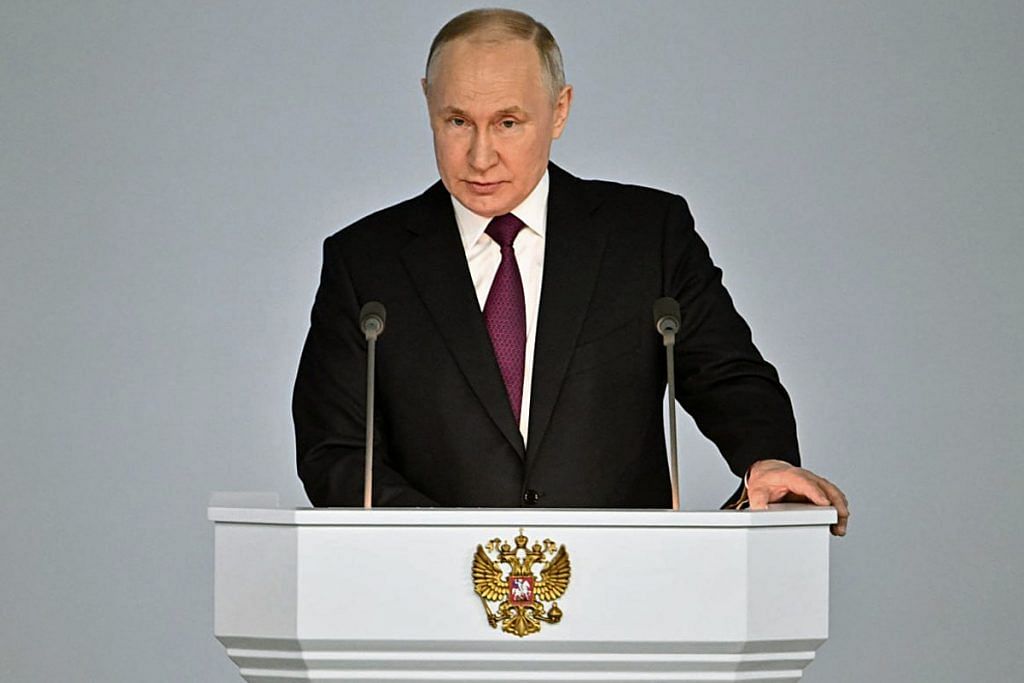New Delhi: Despite the International Criminal Court (ICC) issuing an arrest warrant against him last week for alleged war crimes, Russian President Vladimir Putin will still be able to attend the G20 Summit in New Delhi later this year as India is not part of the ICC.
On 17 March, the Hague-based tribunal issued warrants against Putin and his Commissioner for Children’s Rights, Maria Alekseyevna Lvova-Belova, for alleged unlawful deportation of children amid the Ukraine war.
“There are reasonable grounds to believe that each suspect bears responsibility for the war crime of unlawful deportation of population…from occupied areas of Ukraine to the Russian Federation, in prejudice of Ukrainian children,” read the court’s statement.
This led to speculation among geopolitical commentators that the warrants may put New Delhi under pressure over its invite to Putin for the G20 Summit in September and the Shanghai Cooperation Organisation (SCO) Summit to be held in June this year in Varanasi.
India currently holds a one-year presidency of the G20 and SCO.
However, India is not a member state of the ICC, and has never signed its core treaty, the ‘Rome Statute’.
India has in the past hosted individuals that faced action from the ICC.
In 2015, ahead of then-Sudanese president Omar Hassan al-Bashir’s visit to New Delhi for the India-Africa Summit, the ICC had told India to arrest the African leader and hand him over to international authorities.
In 2009 and 2010, the ICC issued arrest warrants for Bashir, who was allegedly responsible for genocide and war crimes in the western Darfur region of Sudan.
Unlike India, South Africa will have to take the recent ICC warrant against Putin into consideration as it prepares to host the BRICS summit in late August 2023.
BRICS countries include Brazil, Russia, India, China, and South Africa.
Also Read: A combative Russian FM Sergey Lavrov gets called out for being ‘disrespectful’ at Raisina Dialogue
ICC – composition & jurisdiction
Based in The Hague, Netherlands, the ICC is an intergovernmental organisation with 123 member states. It is a tribunal that investigates and charges individuals in cases of genocide, war crimes, crimes against humanity and crimes of aggression.
Member states are obliged under the ICC’s founding treaty – the ‘Rome Statute’. However, dozens of nations including India, China, Russia, and the US, are not ICC members. The Rome Statute was adopted in July 1998 and entered into force in July 2002. It details the jurisdiction, admissibility and applicability of international law under the ICC.
According to the Rome Statute, it is the duty of every state to exercise its criminal jurisdiction over those responsible for international crimes. The treaty also mentions that the tribunal can only intervene when a state is “unable or unwilling” to genuinely carry out its own investigation and bring perpetrators to justice.
India & Rome Statute
Despite not being a signatory of the Rome Statute, India was very much a part of the deliberations leading up to the body’s formation.
New Delhi took part in the Preparatory Committee for the establishment of the ICC as well as the UN Diplomatic Conference or the ‘Rome Conference’ held from 15 June–17 July 1998. These forums were used to debate and ultimately, define the treaty.
However, India abstained from the motion to adopt the Statute at the conclusion of the conference.
Its reasons were related to the powers given to the UN Security Council (UNSC) and the non-inclusion of nuclear weapons and other weapons of mass destruction in actions that would constitute a war crime.
India was also keen to include terrorism as a crime under the treaty.
According to former diplomat Dilip Lahiri, even if India is not ready to join the ICC, it should move towards a “posture of constructive engagement” with it. He had in a report for ORF in 2010 debunked theories that the reason India didn’t sign the Rome Statute was because of concerns that its own officials may be prosecuted.
“Concerns about Indian leaders/military commanders being prosecuted by the ICC if India joined are highly exaggerated,” noted the ex-diplomat.
(Edited by Amrtansh Arora)
Also Read: No joint communique by G20 foreign ministers, Russia & China oppose 2 paras in ‘chair summary’
